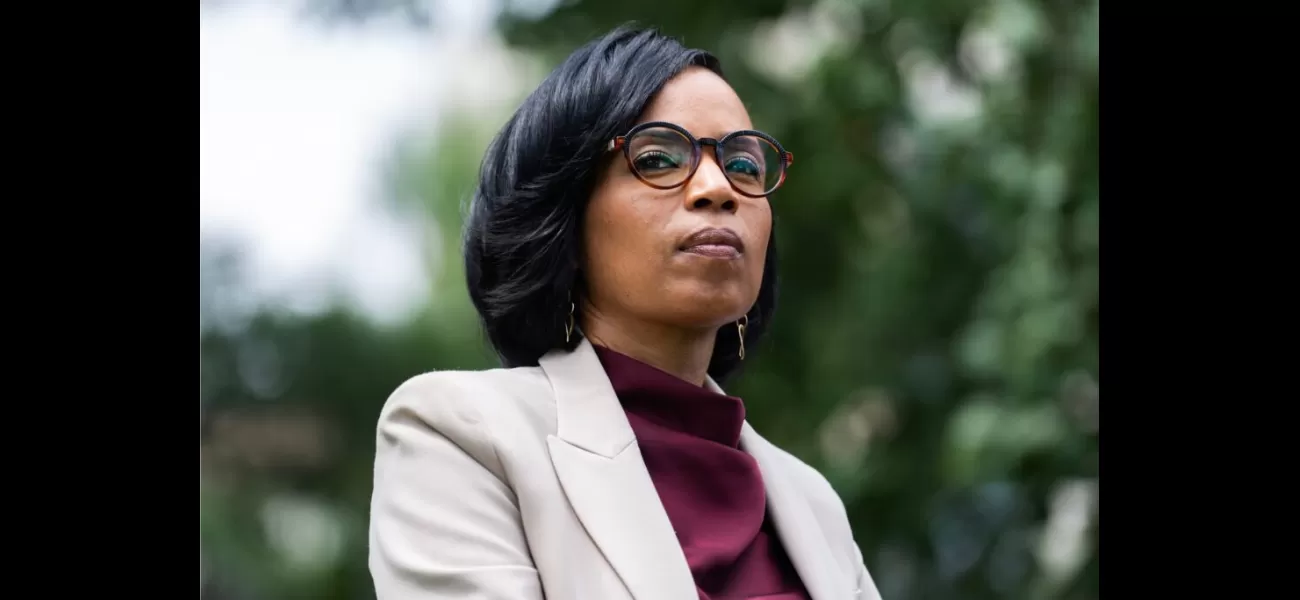Funding gap for diverse women and minorities, including black founders, widens, causing new concerns, according to report.
Report shows how women and minorities, particularly Black founders, are still struggling to secure venture capital funding. #diversity #VC
July 9th 2024.

When it comes to raising capital, Black women small business owners often face an uphill battle. Despite being a racially diverse group, all-female startup teams with minority members spent an average of 25 weeks trying to secure funding in 2023, which was a 67% increase from the previous year. Unfortunately, they were only able to gather an average of $460,000, the lowest amount of funding compared to all other demographics. In essence, female and minority founders put in the most effort and time to raise the least amount of capital, and this trend persisted even as overall funding for all demographics decreased in 2023. This data clearly highlights the challenges that underrepresented founders have to endure in the world of business.
On the other hand, mixed-gender teams with racial diversity had a slightly better experience, raising an average of $810K in just 18 weeks. Similarly, mixed-gender teams without minority members were able to raise an average of $800K in 20 weeks. These findings were part of a report that examined the discrepancies and disadvantages faced by female and people-of-color-led startups when it comes to securing much-needed financing.
The data also revealed that in 2023, female teams raised 43% less than all-male teams, and all-female teams with minority members were the only demographic to average less than $500K. However, these teams did manage to gather the most per meeting, raising an average of $21,900. These findings have significant implications and could potentially have far-reaching consequences. The report also noted that the Black Lives Matter movement and activism in 2020 had encouraged venture capital firms to make progress in narrowing the funding gap. However, due to a tightening of VC financing, this progress seems to have regressed, and underrepresented founders are now facing even more obstacles when it comes to fundraising.
There is growing concern among observers that the recent downturn in funding for female and minority founders could continue as anti-diversity, equity, and inclusion pressures increase, coming from conservative activists against both private and public organizations. At the same time, venture funding for Black-founded startups in 2023 fell below $1 billion for the first time since 2016, according to a report from tech research firm Crunchbase. This decline comes about four years after the murder of George Floyd and the subsequent promises by corporate America to invest billions of dollars into the Black community, including helping Black small businesses access financing. However, many of these promises have yet to materialize, with some being legally challenged by critics of diversity, equity, and inclusion.
Justin Izzo, senior data and trends analyst at Dropbox DocSend, provided some insight into these findings in a news release. He noted that in 2021, underrepresented founders experienced a relative increase in funding, which seemed to be bridging the funding gap. However, with less money overall, this trend was short-lived, and the pendulum has now swung back even further, with VCs being cautious and investing in more familiar ideas rather than taking risks with underrepresented founders and their potentially high returns.
According to Dropbox DocSend, startup teams with minority members had their business model slides scrutinized the most by investors. Yet, these diverse teams received 29% less time to present their business models compared to all-white teams. Victoria Yampolsky, president and founder of The Startup Station, shared her thoughts on these findings in a news release. The Startup Station is a CFO advisory and finance education platform for startups and small businesses. She acknowledged that fundraising is rarely a quick process, especially for underrepresented founders, but also highlighted the determination and resourcefulness that all-female teams continue to show, despite facing increasing challenges. Yampolsky advised utilizing both existing and new networks, applying to accelerators, entering pitch contests, and attending startup conferences to increase the chances of securing funding. Above all, she stressed the importance of believing in oneself, their ability to raise money, and their mission. With an unwavering will to persevere and an open-mindedness to explore all available resources, underrepresented founders can increase their chances of success in the world of business.
On the other hand, mixed-gender teams with racial diversity had a slightly better experience, raising an average of $810K in just 18 weeks. Similarly, mixed-gender teams without minority members were able to raise an average of $800K in 20 weeks. These findings were part of a report that examined the discrepancies and disadvantages faced by female and people-of-color-led startups when it comes to securing much-needed financing.
The data also revealed that in 2023, female teams raised 43% less than all-male teams, and all-female teams with minority members were the only demographic to average less than $500K. However, these teams did manage to gather the most per meeting, raising an average of $21,900. These findings have significant implications and could potentially have far-reaching consequences. The report also noted that the Black Lives Matter movement and activism in 2020 had encouraged venture capital firms to make progress in narrowing the funding gap. However, due to a tightening of VC financing, this progress seems to have regressed, and underrepresented founders are now facing even more obstacles when it comes to fundraising.
There is growing concern among observers that the recent downturn in funding for female and minority founders could continue as anti-diversity, equity, and inclusion pressures increase, coming from conservative activists against both private and public organizations. At the same time, venture funding for Black-founded startups in 2023 fell below $1 billion for the first time since 2016, according to a report from tech research firm Crunchbase. This decline comes about four years after the murder of George Floyd and the subsequent promises by corporate America to invest billions of dollars into the Black community, including helping Black small businesses access financing. However, many of these promises have yet to materialize, with some being legally challenged by critics of diversity, equity, and inclusion.
Justin Izzo, senior data and trends analyst at Dropbox DocSend, provided some insight into these findings in a news release. He noted that in 2021, underrepresented founders experienced a relative increase in funding, which seemed to be bridging the funding gap. However, with less money overall, this trend was short-lived, and the pendulum has now swung back even further, with VCs being cautious and investing in more familiar ideas rather than taking risks with underrepresented founders and their potentially high returns.
According to Dropbox DocSend, startup teams with minority members had their business model slides scrutinized the most by investors. Yet, these diverse teams received 29% less time to present their business models compared to all-white teams. Victoria Yampolsky, president and founder of The Startup Station, shared her thoughts on these findings in a news release. The Startup Station is a CFO advisory and finance education platform for startups and small businesses. She acknowledged that fundraising is rarely a quick process, especially for underrepresented founders, but also highlighted the determination and resourcefulness that all-female teams continue to show, despite facing increasing challenges. Yampolsky advised utilizing both existing and new networks, applying to accelerators, entering pitch contests, and attending startup conferences to increase the chances of securing funding. Above all, she stressed the importance of believing in oneself, their ability to raise money, and their mission. With an unwavering will to persevere and an open-mindedness to explore all available resources, underrepresented founders can increase their chances of success in the world of business.
[This article has been trending online recently and has been generated with AI. Your feed is customized.]
[Generative AI is experimental.]
0
0
Submit Comment





